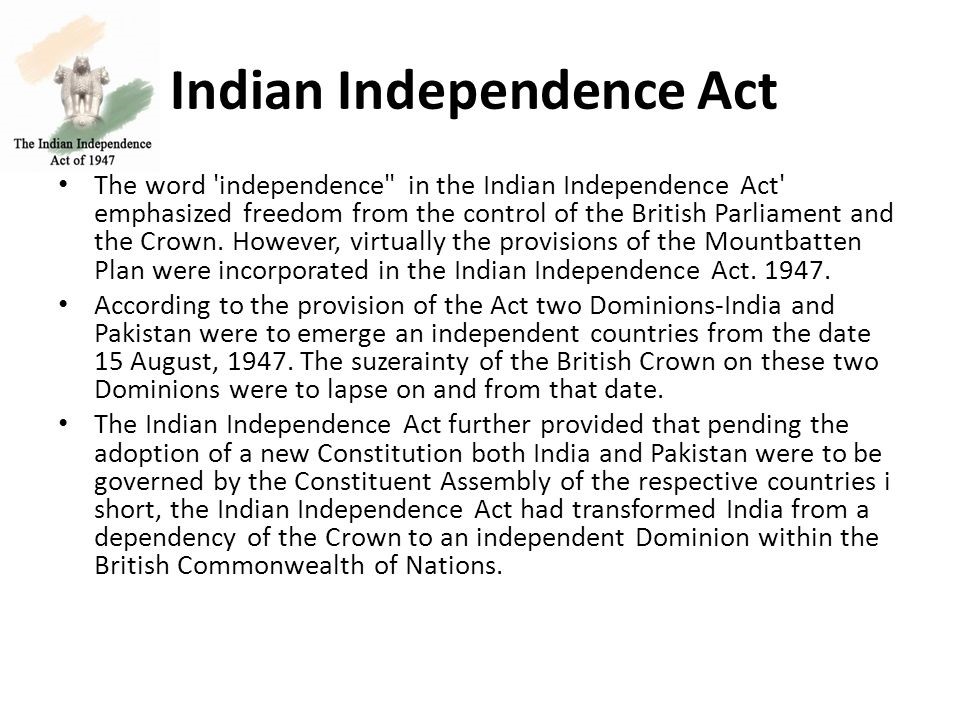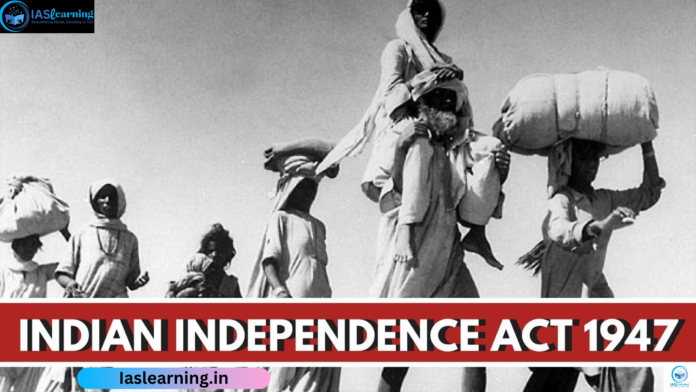Indian Independence Act of 1947:
On July 5, 1947, the British Parliament approved the Indian Independence Act of 1947 which became a significant law on July 18 after being ratified by the Indian government. This act allowed for the peaceful transfer of authority from the Crown to India. After consulting with the key players, including the Indian National Congress, the Muslim League, and Sikh community representatives, Viceroy of India Lord Louis Mountbatten and British Prime Minister Clement Attlee created a plan on June 3, 1947, to divide the British Indian colonies into India and Pakistan.
For more : Ahmedabad Mill Strike: First Hunger Strike,1918

Important aspects of the Indian Independence Act of 1947
- India was proclaimed to be a sovereign and independent state.
- It called for the division of India and the establishment of Pakistan and India as two new nations.
- The post of Secretary of State for India was eliminated.
- The viceroyalty was eliminated, and a governor-general was nominated by the British King in consultation with the government of each dominion.
- It gave the constituent assemblies of the two dominions the authority to enact any act of the British parliament, including the independence act itself, and to draft and approve any constitution for their separate countries.
- The constituent assembly had the authority to enact laws for their individual dominions while the new constitutions were being created and implemented.
- It gave the princely states the option to stay independent or join one of the dominions.
- The Government of India Act of 1935 established the guidelines for the governance of each dominion; the British king was no longer able to propose or reject measures. But this was the Governor-General’s domain.
- The dominions’ governors general were forced to follow the council’s recommendations and assistance.
For more : What is the concept of Nation and State?
What is Constitutionalism And Consitutional Morality
Evaluation of the Act’s features:
- Hastened act: India and Pakistan continue to struggle because of the undefined boundary, which still has consequences today. The Chinese side’s border is the same situation.
- The issue of Jammu and Kashmir is a source of conflict to this day.
- Increase in communal sentiment: Pakistan’s population turned out to be more religiously homogenous than first thought, which was another unintended effect of Partition.
- Suspicion: Non-Muslim minorities in Pakistan are becoming more and more susceptible as a result of the so-called Islamization of life there during the 1980s; Indian Muslims are often suspected of harboring allegiances to Pakistan.
In conclusion:
More than a billion people are still affected by Partition seven decades later. As a result, post-partition fractured identities became stronger, and the nation’s much-celebrated tolerance and accepting values seem to have eroded, upsetting societal cohesion. The use of religious feelings for political purposes has exacerbated societal division.

